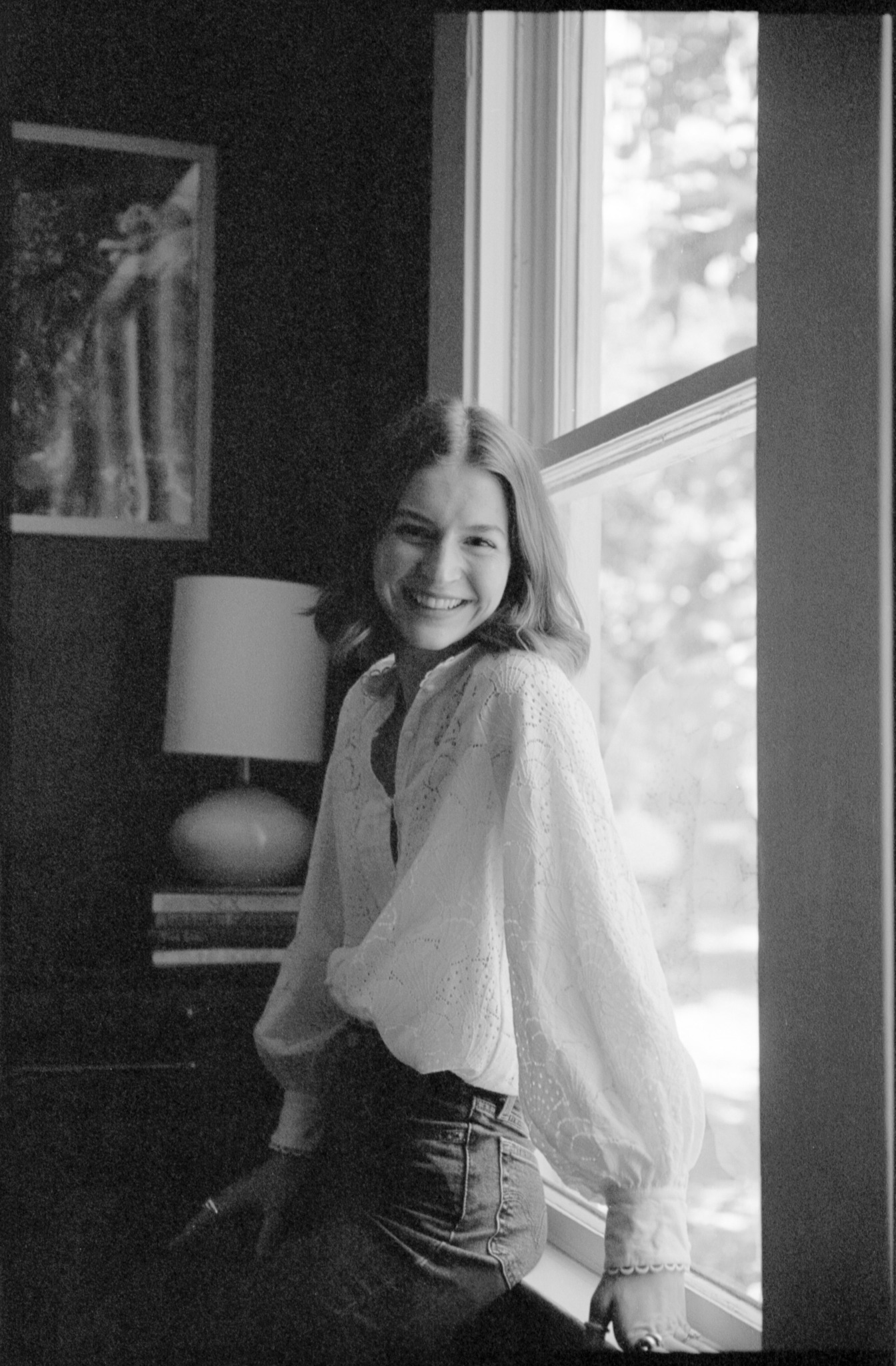Alright – so today we’ve got the honor of introducing you to Madeleine Dale. We think you’ll enjoy our conversation, we’ve shared it below.
Madeleine, thanks for joining us, excited to have you contributing your stories and insights. Was there a defining moment in your professional career? A moment that changed the trajectory of your career?
My story as a therapist actually begins in the early aughts. When I was in second grade, I learned what a therapist was. I was so taken with this idea that I immediately set up shop in my bedroom, printed actual business cards with the help of my father, and proceeded to pass these around to my classmates. I actually got clients, too. Granted, I hadn’t yet learned the concept of a dual-relationship, or HIPAA requirements, so this wasn’t my most ethical venture. But that year, I solidified something important: My sole purpose on this Earth is to help people. To witness people’s souls, their hearts, their dreams, and their sorrows.
What was clear to me as a child couldn’t be any truer to me now. This is my lifelong passion, and my greatest honor.

Great, appreciate you sharing that with us. Before we ask you to share more of your insights, can you take a moment to introduce yourself and how you got to where you are today to our readers.
I am a Licensed Professional Counselor Associate in Texas, seeing Texas residents 18 and up. I am the owner and founder of Tuesday Counseling, a private practice dedicated to providing down-to-earth, compassionate psychotherapy.
The majority of my clinical focus is around trauma, grief, anxiety, and queer-affirming therapy. Survivors of trauma make up approximately 1/2 of my client base, and it is a community I am deeply passionate about serving. Specializing in trauma-focused therapy was not my original intent at the start of graduate school, but rather a topic that I found to be deeply moving and rewarding as I began my clinical work. As a therapist that leans more solution-focused and goal oriented, finding quantified measures of therapeutic progress has been most clearly seen for my clients within trauma-focused work.
As a therapist who specializes in queer-affirming therapy, I’ve seen a very specific subset of trauma that is really only applicable to those within the community (i.e. being rejected or ostracized by family/friends for disclosure of identity, victims of LGBTQIA-related hate crimes, religious abuse, violent assault, etc.). I am deeply proud to be an ally and steward of validation and acceptance for the queer community, it is a privilege I do not lose significance of.
At the tender age of 26, I am a proud member of Gen Z. Being a young therapist/practice owner has come with challenges as well as advantages. I think there is a real movement towards therapy from members of Gen Z, and I am lucky enough to have most of my caseload represented by this demographic. I’ve heard feedback from clients that seeing a therapist similar to their age fosters a greater sense of trust and shared experience. I love working with folks my age, it really seems to break the perceived power imbalance that can often be found within the therapeutic relationship. I am a therapist, but I am also a 20-something. I think this sense of relatability is desirable for effective therapy to take place.

Putting training and knowledge aside, what else do you think really matters in terms of succeeding in your field?
I think that a good therapist must have humility. Not in the sense of meekness, but rather the ability to admit when they don’t have the answer, to be able to accept client criticism/feedback, and to be able to accept when they are not the right fit for a client’s needs. I think there’s this idea when you first start out in the field that you need the answer to every question, and the skillset to see every client. It simply isn’t possible. Rather, having the awareness of your clinical limitations and the humility to bow out not only prevents therapist burnout, but client harm.
Additionally, I encourage clients to check in with me every few sessions to monitor the feel of sessions and my efficacy as a therapist. By offering space for feedback, I have been able to tailor my approach to better fit the needs of my clients. While it can be uncomfortable to hear that there’s room for improvement in a certain area of my treatment, it has always been to the advantage of my therapeutic relationship and treatment.

What do you think helped you build your reputation within your market?
With starting a new practice as a freshly-minted clinician, I had a lot of odds against me. Creating a brand/reputation/gainful employment situation while also solidifying my clinical skills can certainly be a challenge. My biggest ally in this process? TikTok.
This app singlehandedly filled my caseload and introduced me to other therapists around the country, as well as allowing me to connect with millions of people. I am so thankful to this app for supporting my liftoff into practice – I am unspeakably grateful.
Contact Info:
- Website: https://www.tuesdaycounseling.com
- Other: TikTok: @tuesdaycounseling

Image Credits
Valerie Thompson, 2024


